
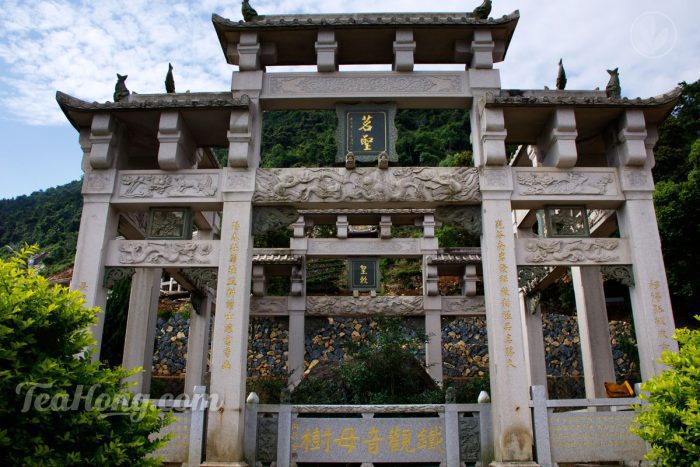


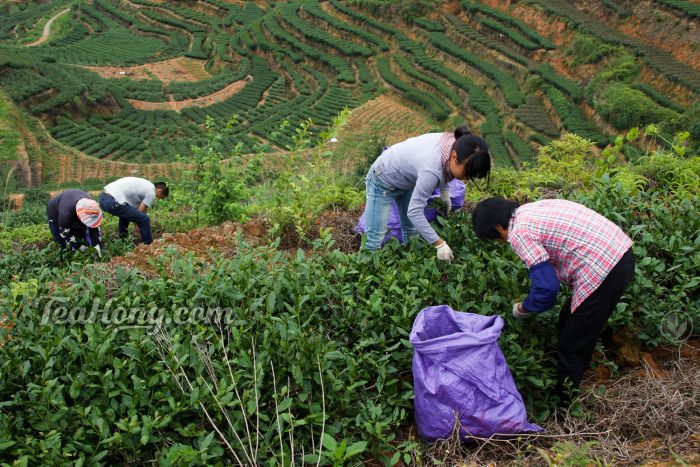
$ 26.90
Original Tieguanyin Cultivar
To old time aficionados, tieguanyin is not just about floral aroma. They seek yun-wei, which can be roughly translated as “lingering taste of various tones and accents”. For the right yun-wei, we went to the origin of tieguanyin for a fourth generation farm high in altitude. Tea Hong’s Tieguanyin Traditional is produced from a particular patch where only matured shrubs of the thorough-breed cultivar grow and are harvested only once year. This is to ensure maximum amount of taste and salutary substances are stored in the young leaves for subsequent mastery processing for the wonderful lingering taste of various tones and accents. Like a fine old style tieguanyin should be.
Net weight: 100 g (3.5 oz) in Kraft-alu pack
In stock
西坪正欉 古法清香鐵觀音
Taste profile
Nose: Crisp, fresh bouquet with buttery undertone. Refreshing overtone that reminds one of the after-rain air in high mountain forrest. Light accents of oatmeal cookies and the root of Mongolian milkvetch. Palate: Smooth, yet brisk body of silky tactility. Floral with undertone of Job’s tears and hints of herbs. Bright, earthy accents. Finish: Long, lively and malty aftertaste with light, creamy sweetness.
Infusion tip
A fine tieguanyin such as Tea Hong’s Tieguanyin Traditional is not meant only for gongfu style infusion, although many prefer it that way. Brewing it in the large teapot in conventional approaches also give you remarkable results. Always blanch it very quickly before infusion for maximum enjoyment.
Recommended temperature 95°C or above.
Please note that the dry leaves are quite tightly rolled and therefore heavier than the average loose leaves. Familiarise yourself with the tea basing on weight to water volume ratio.
How to tell a genuine Tieguanyin Traditional
For more details, please read How to Read a Tieguanyin Tea Leaf at Tea Log, our blog. While you are there, see also some nice pictures in Traditional Tieguanyin Tea Farm.
Additional information
| Weight | 160 g |
|---|---|
| Dimensions | 18 × 9 × 5 cm |
| Net weight: | |
| Tea category: | |
| Class: | |
| Recommendation: | |
| Origin: | |
| Packaging: | |
| TCM character: | |
| Infusion color: |
Reviews(1)
Only logged in customers who have purchased this product may leave a review.
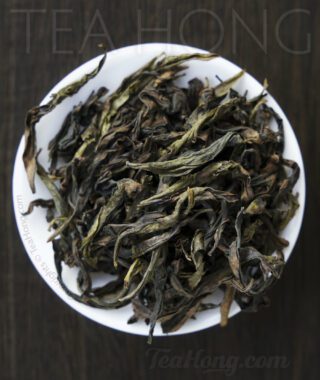
Cassia Extraordinaire, Wuyi yancha oolong
Floral Aromas, Fuller Bodies, Neutral Energy, Oolongs, Tea, Wuyi-shanTea Hong’s Most Bouquet Wuyi Oolong
Great discipline in the use of fire distinguishes Cassia Extraordinaire from most other Wuyi varieties with a supple, deliciously floral and delicate scent balanced with a full, lively body. Thanks to this masterful baking, this lighter style Wuyi oolong keeps well and improves with extended storage, as it should traditionally. This is our most “bouquet” style Wuyi oolong, being on the other end of the scale as the deep baked classic style Cassia Classic or Red Cloak Grande in Tea Hong’s proud Wuyi repertoire.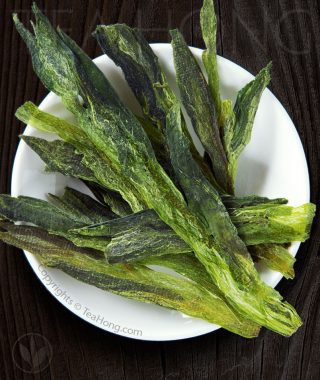
Taiping Houkui Premium, green tea of shidaye cultivar
Cold Energy, Green teas, Huangshan & Anhui, Lighter Aromas, Milder Tastes, TeaBujian Special:
A very special tea bush — Camellia sinensis cultivar Shidaye — makes this unique looking tea. Each and every tediously selected pluck is carefully flattened between meshes during the slow baking process. We select only the best of these top grades for the fresh, cooling and cleansing sensations that complete this tea's purpose in addition to being wonderful to look at.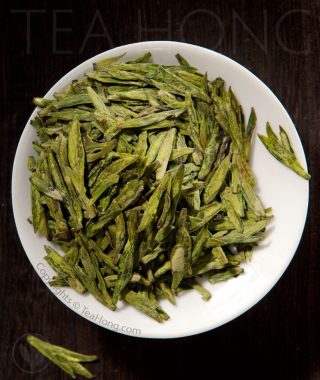
Longjing First Flush, hand-roasted green tea
Cool Energy, Fuller Bodies, Green teas, Lighter Aromas, Tea, ZhejiangHangzhou Original:
This is a more affordable version of the most sought after Chinese green tea. While some people are willing to pay thousands for a small pack of the earliest harvest in Spring, Tea Hong brings you what is authentic but slightly later in season, for similar enjoyment but much less in price. It is, nevertheless, still a first flush — some tea grows slower than others, dependent on the cultivar, horticulture and micro-climate.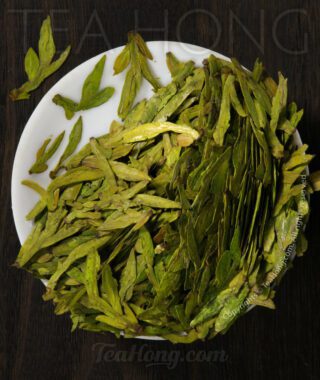


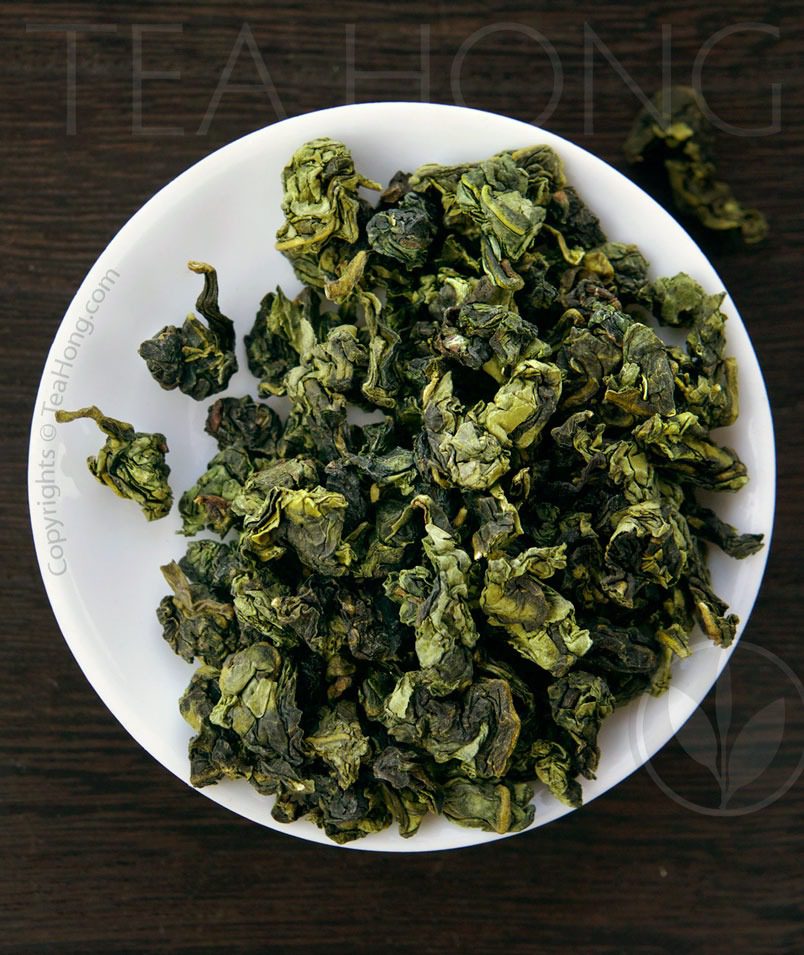
Wow, what a lovely and thoroughly enjoyable Tieguanyin. It’s very high quality with a humble price tag – if you want a daily drinker that feels more like a luxurious treat, this may be the perfect option for you. One could easily pay twice as much from a different vendor and receive something half the quality as this.
This tea is very balanced, it has an excellent mouthfeel and smooth floral qualities that do not feel overly “green” or “raw” at their core, like so many other Tieguanyin do. The aftertaste sits very nicely in the back of the throat and lingers for a while, as all good Tieguanyin should.
Oddly enough, I enjoy looking at the leaves after they are brewed. You can tell this is the authentic cultivar, plucked and processed with respect for a craft that brought this oolong into the center stage of a global spotlight.
Tea Hong’s traditional-style Tieguanyin captures the essence of what makes this oolong one of the most sought-after teas in the world, and at a price point that is simply unbeatable.
There is an old Hong Kong saying, “Ng4 paa3 fo3 bei2 fo3, zi2 paa3 ng4 sik1 fo3 — 唔怕貨比貨,只怕唔識貨” — meaning, “(we) fear not of (you) comparing our products with those of others, (we) fear only of ignorance of quality.” The city of Hong Kong began as a trading port in the 19th century. It very soon became a key hub for goods from China, Southeast Asia and around the world. After the taking over of China by the Communists in 1949, the British colony’s trading role became even more important. Competition amongst sellers was keen. This saying was widely used amongst purveyors of top quality products to alert buyers to watch out carefully for inferior quality hidden under a similar appearance or name, or even false claims. Although it had long since became a cliché and forgotten in recent decades, I find the market condition no less confusing, at least in the area of tea.
I am happy that besides knowing your Phoenix oolongs, you also understand a genuine tieguanyin. I hope more people do.
Nowadays, partly due to the indulgence in the overuse of fertilisers, many productions of even authentic tea bushes lack the intricacies of a traditional tieguanyin. Not to mention lowly crossed clones and sloppiness in processing. Respectable farmers and producers are, therefore, precious finds.